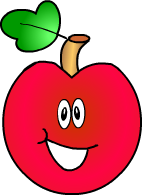Isaac Newton was born in England in 1642 and is considered one of the most influential scientists and mathematicians in history. He grew up on a farm, but he didn’t enjoy farming and was more interested in understanding how the world worked. After attending Cambridge University, he made many discoveries that changed how people thought about science and mathematics. Newton was known for his deep curiosity and intelligence, which led him to explore many areas of knowledge, from physics to astronomy.
In mathematics, Isaac Newton is best known for developing calculus, a type of maths that deals with change and motion. Calculus is used in many areas of modern mathematics, physics, and engineering. Although you might not study calculus until later in your school years, Newton’s work also involved other concepts that are already part of your curriculum, such as geometry and algebra. His ability to solve complex problems using maths is why he is remembered as one of the greatest mathematicians of all time.
Apart from mathematics, Newton made important discoveries in science, particularly in physics. He is famous for his three laws of motion, which explain how objects move, and for the theory of gravity, inspired by the story of an apple falling from a tree. Newton also made contributions to astronomy, explaining how the planets move around the Sun. In addition to his work in science, he also spent time studying philosophy and alchemy, showing how wide his interests were.
Isaac Newton is a fascinating figure because of how much he contributed to our understanding of the world. His discoveries in both mathematics and science laid the foundation for many things we use today, from spacecraft to computers. Learning about Newton helps us appreciate how curiosity and careful thinking can change the world, making him one of the most important figures in human history.

Appreciate the work of Isaac Newton by trying some of the maths that this mathematician is known for.
There is an activity called Differentiation that you could try right now. Practise the technique of differentiating polynomials with this self marking exercise.
So there's no better time than the present to learn some mathematics from the past: let's Go!




